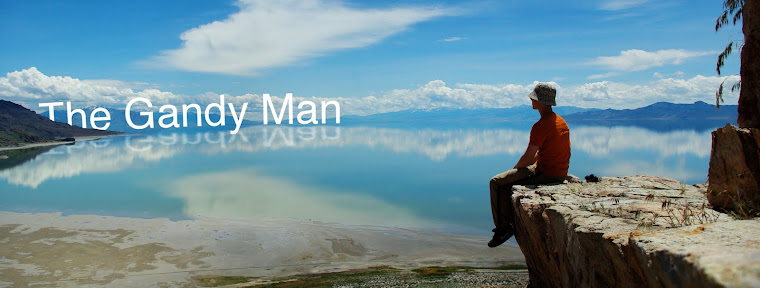
As I’ve gone back to reread some of the conference talks from this past October conference, President Uchtdorf’s talk from the Priesthood session really stood out to me. It was an exceptional talk when I heard it in conference, but it wasn’t my favorite back in October. Since then the topic Lift Where You Stand has become even more meaningful to me, and addresses a couple of themes that I have been thinking about a lot lately.
One of the reasons that I have grown more fond of this talk recently is that it relates directly to my capstone project here at BYU. I’m a film major and this project is actually a short film called Man of the Cloth that I’ve been in the process of writing over the last year. The script is basically done at this point and it will be filmed in May, but in the process of writing many, many drafts I discovered that the theme at the heart of the story was about lifting wherever we are. President Uchtdorf talks about two different kinds of people; those who seek a cave or a crown. My film is about the second kind of person, probably because I am more often the type to seek a crown. In the film the main character wonders, like President Uchtdorf says, “What possible influence can I have [in this remote place]?” He thinks this with the best intentions, but the root of the problem he is falling into is selfishness. Without the right perspective and attitude, opportunities to serve and grow will be missed. It is like the often quoted line from a conference address by J. Reuben Clark in April 1951, “In the service of the Lord, it is not where you serve but how. In the Church of Jesus Christ of Latter-day Saints, one takes the place to which one is duly called, which place one neither seeks nor declines.” 1 We must concern ourselves with the quality of our service, not the visibility of our service.
Another related element of this topic is what Elder Oaks once referred to as “laboring in the remote corners of the Lord’s vineyard.” 2 These corners are perhaps unflattering or dull by the worlds standards but that doesn’t diminish the importance of God’s children who live there. There may not even be a multitude of people to serve in that place, but we know from the scriptures that even if there were only one soul in that corner of the vineyard no price would be too great to save that soul. No service goes to waste, because even if our service was of no use to others, at the very least it would be of benefit to us in bringing us nearer to Christ. I like the verse from the hymn I’ll Go Where You Want Me To Go (Hymn no. 270),
There’s surely somewhere a lowly place
In earth’s harvest fields so wide
Where I may labor through life’s short day
For Jesus, the Crucified.
Whatever service we render, no matter where we are, is really service rendered to our Savior. It is for Him that we should labor.
Some of the most important service that often goes unseen and unrecognized is the service that is render in the home by loving parents. In a fireside given at BYU in 1990 President Hunter said, “Most of us may spend much of our lives giving service in relative obscurity. Consider the profound service a mother or father gives in the quiet anonymity of a worthy Latter-day Saint home.” 3 I think of my parents, the sacrifices they have made, and the profound impact they have had on my life. Where would I be without them? And yet, parenthood did not bring them wealth, fame, or recognition as the world measures it. I am so grateful for the other pursuits they put to the side selflessly in order to have a family. This is especially the case for mothers who may set aside school or a career they were working towards in order to raise children in the home. Remember, “thy Father which seeth in secret... shall reward thee openly.” (Matt. 6:4)
1. J. Reuben Clark, in Conference Report, Apr. 1951, 154.
2. Dallin H. Oaks, “I’ll Go Where You Want Me To Go,” Liahona, Nov 2002, 67–70.
3. Howard W. Hunter, “Out of the Limelight,” New Era, Sep 1991, 4

No comments:
Post a Comment